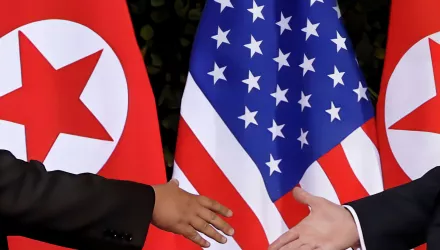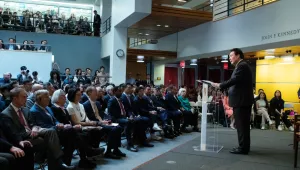Explaining North Korea's Unlikely Success: Personalist Regime, Weak State Capacity, and Nuclear Weapons Program
North Korea’s stunning success in building nuclear weapons has posed difficult questions for existing theories of proliferation. These theories suggest that a personalist regime ruling over a state with anemic capacity should fail at building the bomb. In this article, I present a theory that can explain North Korea’s success and the failures of other similar states like Saddam Hussein-led Iraq. In a nutshell, an internally secure personalist regime with weak state capacity has a better chance of successfully pursuing nuclear weapons than a similar regime battling internal challenges. I identify the causal mechanism that links internal security challenges, specifically coup risk and the risk of ethnic conflicts, to lower involvement of the top leader in the nuclear weapons program. Using the accounts provided by Iraqi scientists and engineers, I show this mechanism at work in Saddam’s regime. The paucity of empirical evidence from within the North Korean nuclear weapons program prevents a satisfactory test of the theory for that state; however, I do show that the Kim dynasty faced lower internal security challenges and that the top leaders paid greater attention to the nuclear weapons program.




